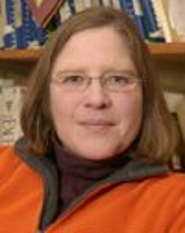
Professor of Religious Studies Heidi Ravven delivered two keynote addresses at conferences during August. Dartmouth College Professor of Religion Susannah Heschel, gathered a select group of professors of Islam and of Judaism from all over the world for an intensive 3 1/2-day institute in August on Gendered Intersections: Feminist Scholarship in Islamic and Judaic Studies.
During the introductory plenary session Ravven delivered an address offering an overview of the field of feminist scholarship in Jewish philosophy and she also introduced her current project funded by the Ford Foundation on Rethinking Ethics and American Pluralism via Spinoza. Ravven called for Jewish and Islamic philosophers to work together to mine their common tradition for resources to resolve ongoing widespread problems in philosophical ethics.
The Judaeo-Islamic tradition of philosophy, she believes, has a more realistic and naturalistic understanding of the human person, and especially of the body, from which a more realistic and practical conception of what ethics is about could be derived. This was the first gathering of Jewish and Islamic feminist scholars and the institute created a sense of common purposes and brought to light areas of common concern and engagement. Future avenues of collaboration also came to light.
Ravven also delivered a keynote address at the International Institute of Advanced Systems Research annual meeting in Baden-Baden, Germany, in August. She was honored with a keynote address in recognition of the Best Scholarly Paper Award that she received from the Institute in 2004. Ravven's address was on "What Spinoza Can Teach Us Today About Naturalizing Ethics: Provincializing Ethics and Freedom Without Free Will."
Ravven also attended a conference at California Institute of Technology in Pasadena, Calif. in June on Neurophilosophy: The State of the Art: The Final Meeting of the McDonnell Project in Philosophy and the Neurosciences. This conference marked the inception of a new field of philosophy, neurophilsophy. A number of neuroscientists and philosophers had spent the last year meeting to discuss areas of mutual interest with an eye to establishing the new field of neurophilosophy, The 3-day McDonnell Project conference offered an overview of the areas of concern of neurophilosophy and some current findings, particularly on cognition, the emotions, unconscious processes.
Posted August 7, 2005
